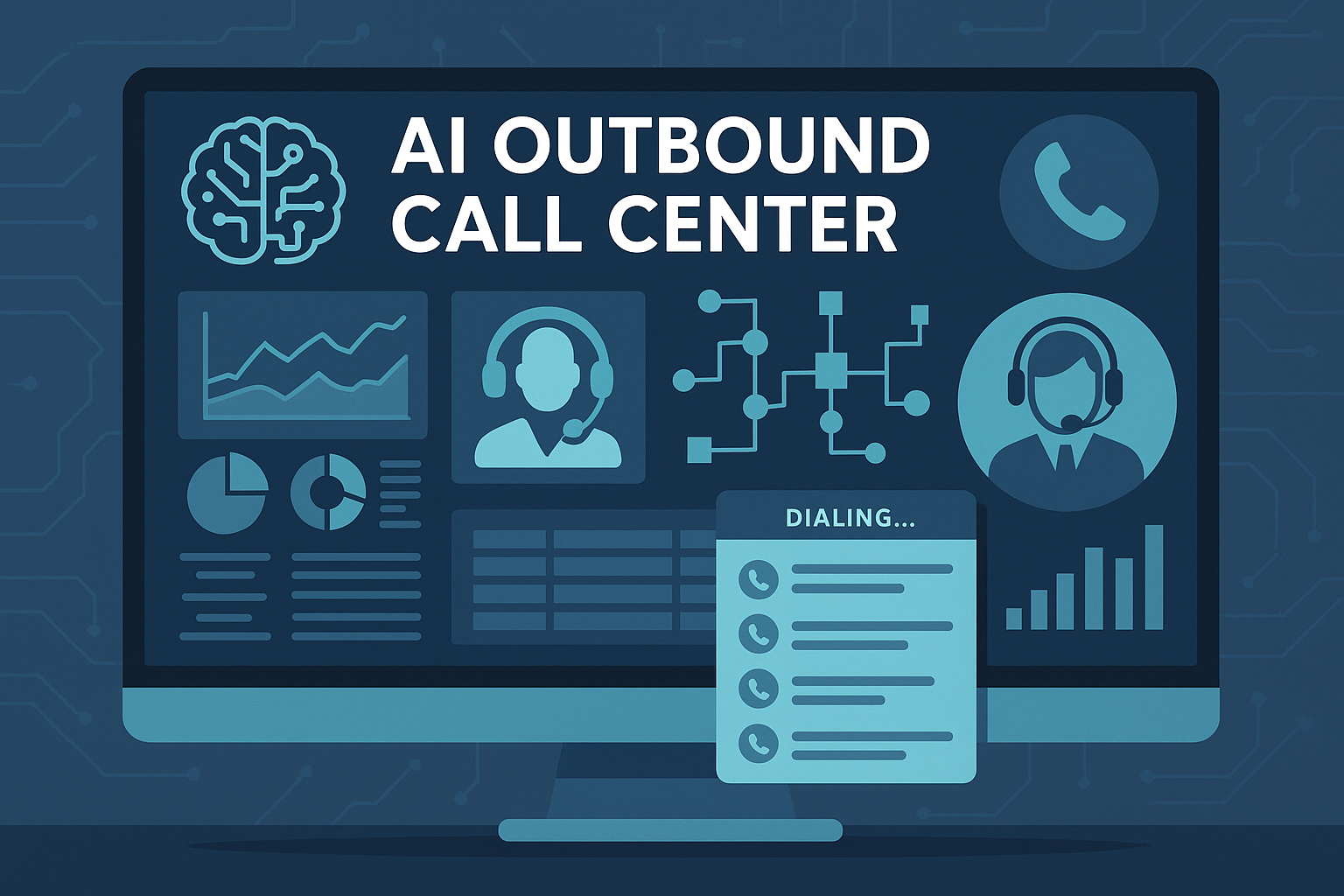How AI Transforms Outbound Call Strategies

The landscape of customer communication is rapidly evolving as businesses seek smarter, data-driven ways to connect with prospects. Traditional outbound calling once relied heavily on manual dialing and intuition, often leading to inefficiencies and missed opportunities. Today, intelligent automation is reshaping these interactions, enabling companies to understand customer behavior better and tailor their outreach for improved engagement and conversion.
Modern contact centers are now using advanced tools that enhance how teams prioritize leads, schedule calls, and analyze outcomes. With the help of AI call center software, businesses can streamline repetitive tasks, detect optimal calling times, and personalize scripts based on real-time insights. This integration not only boosts productivity but also refines the customer experience—ensuring every conversation feels more relevant, timely, and efficient.
Table of Contents
The Role of AI in Outbound Calls
Artificial intelligence is revolutionizing outbound call operations by transforming how businesses engage with prospects and customers. Instead of relying solely on manual efforts, AI enables more innovative call scheduling, lead prioritization, and message personalization based on data-driven insights. Predictive algorithms help identify the best times to reach potential clients, while natural language processing allows for more adaptive and meaningful conversations. Additionally, AI systems can analyze past interactions to refine future strategies and improve conversion rates. By automating repetitive tasks and enhancing caller efficiency, AI empowers organizations to achieve higher productivity and deliver a more seamless, customer-focused communication experience.
Benefits of AI-Driven Outbound Calls
- Increased Efficiency: AI-driven dialing tools can make thousands of simultaneous calls, connecting agents only once a live recipient answers. This significantly reduces idle time and boosts team productivity.
- Cost Savings: By automating manual processes, companies have reported operational cost reductions of up to 85%, allowing budgets to stretch further while pursuing ambitious outreach goals.
- Improved Customer Experience: Personalization powered by AI ensures customers feel understood and valued—leading to shorter wait times, accurate routing, and conversations that address their specific needs.
Furthermore, AI can predict the classes of queries or objections most likely to arise during outbound calls, equipping agents with suggested responses, resources, or escalation procedures in real time. This proactive support not only drives conversions but also enhances trust with prospective clients.
Legal Considerations and Compliance
Implementing AI in outbound calls requires strict adherence to privacy regulations, such as the TCPA, which governs both manual and automated calls. Businesses must obtain explicit consent, maintain proper records, and provide straightforward opt-out choices to prevent penalties and reputational harm. Additionally, they should stay informed about data privacy laws, such as GDPR and various US state regulations. Creating AI that respects privacy helps avoid legal issues and fosters trust with users.
Best Practices for Implementing AI in Outbound Calls
- Obtain Clear Consent: Develop transparent opt-in processes that clearly communicate when and why calls will be made, and promptly honor opt-out requests.
- Personalize Interactions: Harness available customer data to tailor messaging, increasing engagement and reducing irritation or call abandonment.
- Monitor and Optimize: Regularly analyze call completion rates, customer satisfaction scores, and compliance outcomes, making adjustments as data and regulations evolve.
Regularly training staff and updating AI algorithms ensures the call strategy remains effective and compliant as industry standards and consumer expectations change.
Challenges and Limitations
As promising as AI-driven systems are, they bring several challenges that businesses must navigate. Chief among them are data privacy concerns, the risk of over-automation leading to impersonal interactions, and customer apprehension about engaging with non-human agents. Ensuring robust data security and offering easy escalation to human agents when needed helps address these limitations and preserves trust.
The technology, while rapidly improving, is not foolproof—AI may occasionally misinterpret sentiment or context, requiring careful supervision and quick intervention protocols.
Future Trends in AI and Outbound Calling
The evolution of conversational AI and natural language processing will drive even more nuanced, human-like interactions in outbound calls. Augmented with emerging tools such as sentiment analysis, multilingual engagement, and seamless integration across digital communication platforms, future strategies will offer unparalleled reach and sophistication. AI will also enable predictive intelligence, allowing businesses to anticipate customer needs before the first call is even placed—including cross-channel engagement strategies to boost outreach efficacy.
Conclusion
AI is fundamentally transforming outbound call strategies by delivering greater efficiency, driving cost savings, and elevating the customer experience. However, its successful adoption hinges on regulatory compliance and the continuous pursuit of best practices. Businesses that embrace these evolving technologies position themselves to thrive in a rapidly shifting landscape, leveraging AI to foster more meaningful connections and sustain a competitive advantage.







